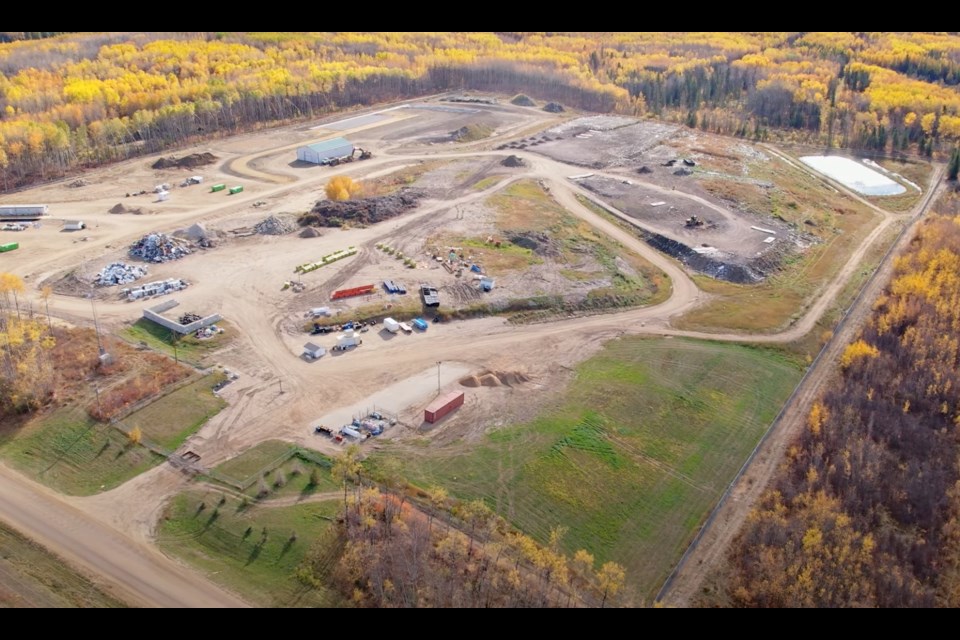LAKELAND - Within the next few years, municipalities in the Lakeland region and beyond could be utilizing an environmentally-friendly, centralized facility to send waste from local landfills.
Recently, the government of Alberta announced funding for an engineering and design study for a regional facility to be located in the Industrial Heartland Designated Industrial Zone, about 150 kilometres southwest of Lac La Biche.
According to provincial officials, the waste centre, could be operational by 2027, and will turn garbage from municipal landfills into clean electrical energy. The site will also offer carbon-capture abilities, taking carbon from the waste-to-energy process and storing it in one of the province’s carbon impounding hubs.
The expectation, say provincial officials is that the facility will be capable of capturing and storing roughly 185,000 tons of carbon dioxide on a yearly basis.
The idea of transporting municipal waste to a central facility such as the one being proposed by the Alberta government has the support of at least one Lakeland politician.
John Mondal, Ward 7 councillor and deputy mayor of Lac La Biche County, said he supports sending waste to a central collection point when it makes economic and environmental sense.
“Sending waste to central locations makes sense if it reduces our carbon footprint,” Mondal told Lakeland This Week, saying the idea, in principle, makes sense to him. “Instead of waste taking up space in our landfills, which never decomposes and never goes away, it can be used to create energy and heat.”
Before a decision can be made to round up solid waste from area landfills and ship it to a facility hours away, Mondal said, all Lac La Biche County officials would first need to conduct a full feasibility analysis to determine the full impact of such a change.
Such a study, he continued, would examine different considerations, including not only the length of time it will take for trucks to transport the waste, but also possible environmental effects.
“Travel distances, fuel consumption, greenhouse gas emissions, the waste reduction potential, plus many more factors need to be considered before choosing to transport waste to an outside central location instead of our local waste management facilities,” he explained.
Near capacity
Mondal says expanding landfills isn’t an option, as these sites are not environmentally-friendly. Currently, he added, the two landfills and four transfer stations in Lac La Biche County have very limited lifespans. Finding alternative methods of waste disposal has been a discussion topic of area councils for decades.
While the issue of transporting waste to a central collection point has yet to be discussed, Mondal said right now, the municipal government is always looking for ways to improve waste reduction. Waste reduction through reducing, reusing, recycling and recovering waste, he explained, is continuously improving landfill lifespans.
Bill Rogers, the chief administrative officer for the Town of Bonnyville, was also contacted for comment on the proposed waste-to-energy facility. He said that as of yet, the province hasn’t shared their plans with the municipality. Until they do – and until officials have a chance to review it – he couldn’t comment.
Town of St. Paul officials were also contacted for comment but had not responded by the editorial deadline.
It their initial report on the project, provincial government officials say $2.8 million in provincial funding will be put towards the initial study and engineering plan on the project. A private energy company is expected to be contributing $4 million in additional funding to the project.
The ultimate goal of the facility, say provincial officials is to divert more than 200,000 tonnes of municipal solid waste away from landfills each year.
According to provincial government background information on the project, Less than three per cent of municipal waste in Canada is currently being converted into energy. The same research shows that landfills account for 23 per cent of methane emissions in Canada.
“Alberta is a leader in responsible energy development. I am proud to see our government continue to invest in new, innovative technologies that will help ensure our power grid is affordable, reliable and sustainable for generations to come,” said Nathan Neudorf, Alberta’s Minister of Affordability and Utilities.
Following the results of the study, as well as regulatory reviews, construction on the site could begin as early as 2025.




